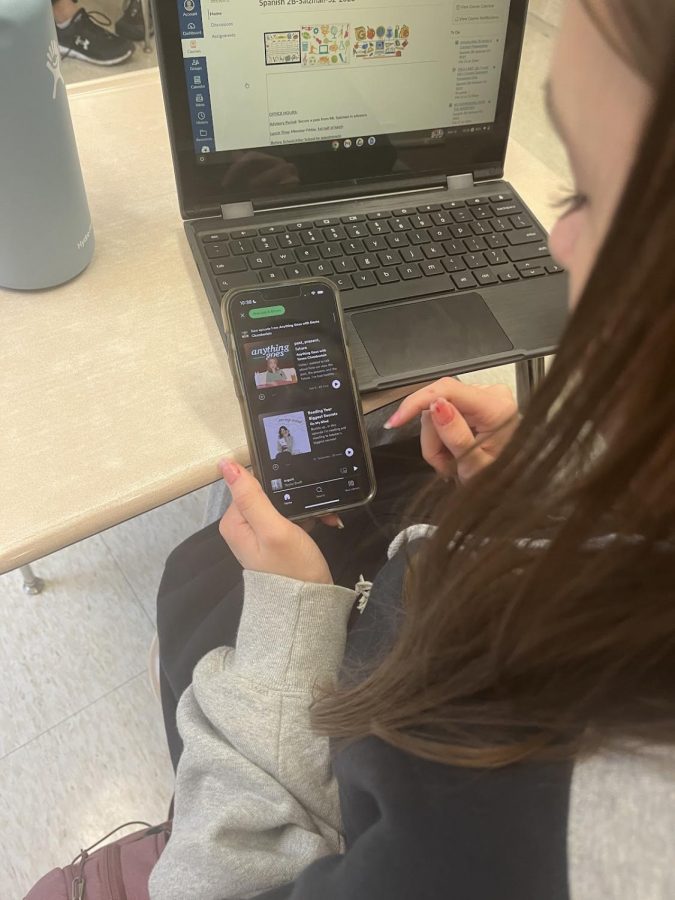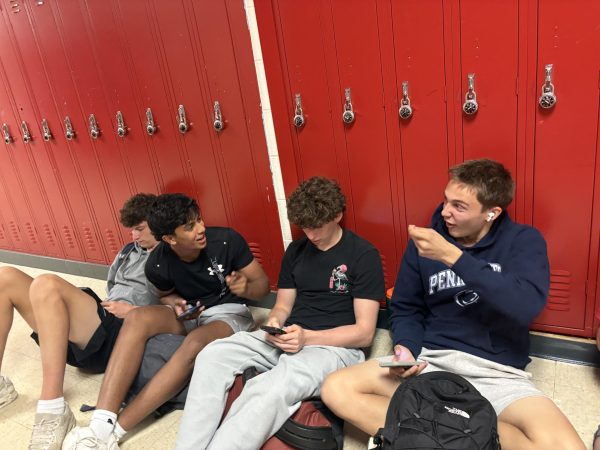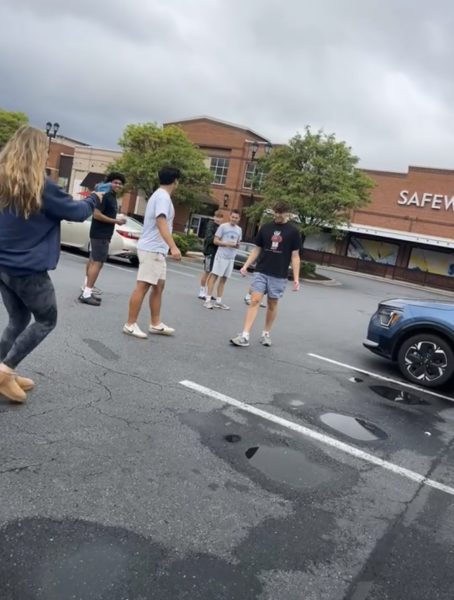Podcasting rises post-Covid; People are listening
Freshman Ava Eisenman decides to listen to Emma Chamberlain’s podcast “Anything Goes” while studying for her upcoming Spanish test.
Whether an audio from Emma Chamberlain’s podcast Anything Goes is on your TikTok For you page, or at your family reunion, a cousin is obsessing over a controversial true crime podcast, there is an essential truth: Nearly everywhere you turn, podcasts are on the rise.
Podcasts are portable digital audio content that often forms strong communities and informs listeners about any given subject. They have had increased popularity in the past decade, and seem to be a mainstay in society.
People listen to podcasts around the globe. Listening has recently skyrocketed in Southern Europe. “Edison Research found persons age 13+ now spend six percent of their audio time with podcasts, up from two percent in 2014,” Brad Adgate, Senior Vice President and Director of Research at Horizon Media, said.
Even prior to the pandemic, podcasts were trending upward. Although in March 2020 listenship dipped, it quickly spiked back up as people adjusted to their new routines. By 2022, podcasting was an “increasingly popular pastime in the U.S with 79 percent of respondents being aware of the format,” Marie Charlotte Gotting, Research expert, said.
Podcasts can be listened to on the go and are convenient for multitasking, busy people. By 2024, podcasting is set to be a $4 billion industry. Podcasts form tight-knit communities. Similar to how fans often come together over their shared adoration of movies, music, and TV series, the same can be said for podcasts.
Before podcasting, ordinary people making their living talking seemed like uncharted territory and completely unconventional. But as podcasts explored specific niches and ideas, brands are listening and paying thousands to introduce themselves to these communities.
Podcasts can also assist auditory learners. They can be essential for non-English speakers, furthering their pronunciation skills. because you are directly hearing the creator’s voice, it often evokes more emotion and you can better connect with them. This is due to how you can hear their tone and emotion when they speak. “Podcasts provide us with opportunities to connect with others, fostering a sense of personal connection through the power and intimacy of one’s voice,” Allison Ebner, Communication Specialist at the University of Delaware said.
The podcast industry is a diverse space with anything from education to comedy and news to health and fitness. There is also a broad range of channels like ESPN and NPR.
While freshman Avni Koenig enjoys The 1619 Project, Literary Disco, and Tea with A & Phee, freshman Sofie Escobar enjoys Crime Junkie. “There are nearly 2.5 million podcasts listed in Apple podcasts,” Neal Schaffer, Founder of the digital marketing consultancy PDCA Social, said.
Household names are starting podcasts such as former President Barack Obama and former First Lady Michelle Obama. “Podcasts offer an extraordinary opportunity to foster productive dialogue, make people smile and make people think, and, hopefully, bring us all a little closer together,” Barrack Obama said to the Washington Post.
Michelle Obama is excited about a deal for an unspecified number of episodes with audio platform Spotify. “Our hope is that through compelling, inspirational storytelling, Higher Ground Audio will not only produce engaging podcasts, but help people connect emotionally and open up their minds—and their hearts,” Obama said to the Washington Post.
Your donation will support the student journalists of Thomas S. Wootton High School. Your contribution will allow us to purchase equipment and cover our annual website hosting costs.
Junior Hayley Gottesman is an editor-in-chief in her third year on Common Sense. She enjoys reading and hanging out with her friends. You can find her...







